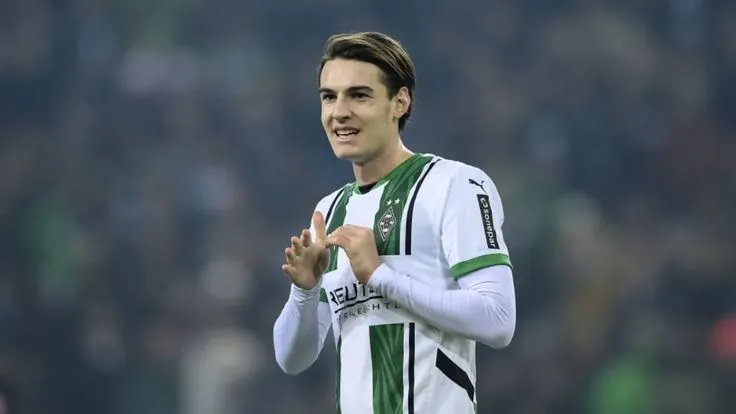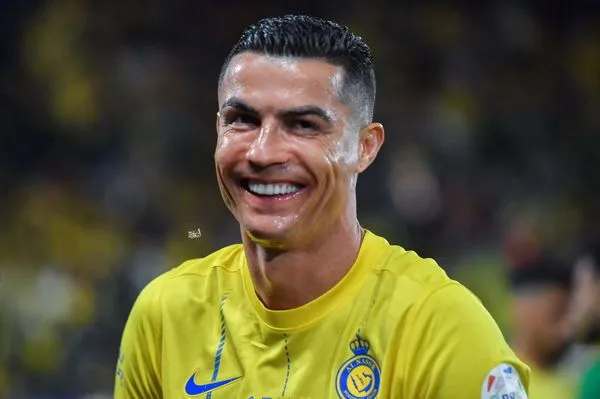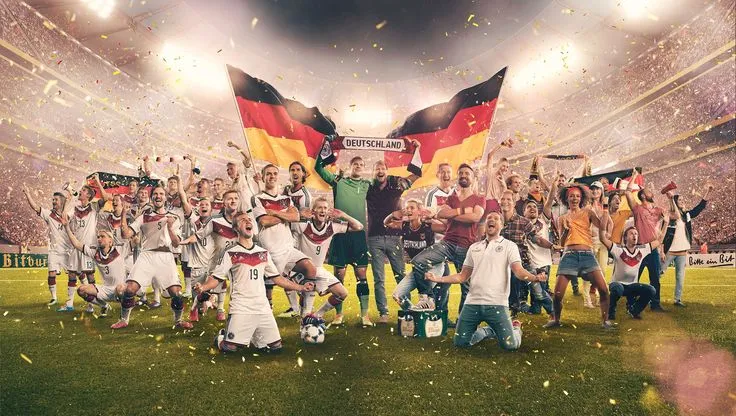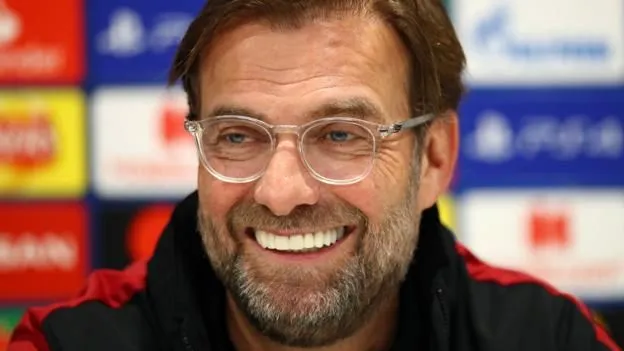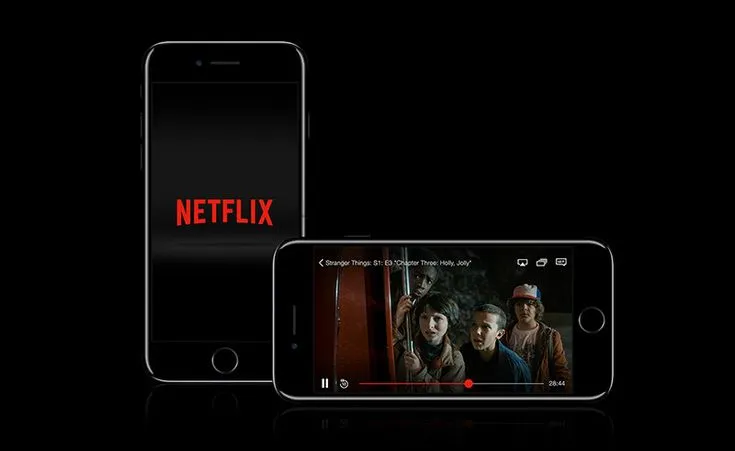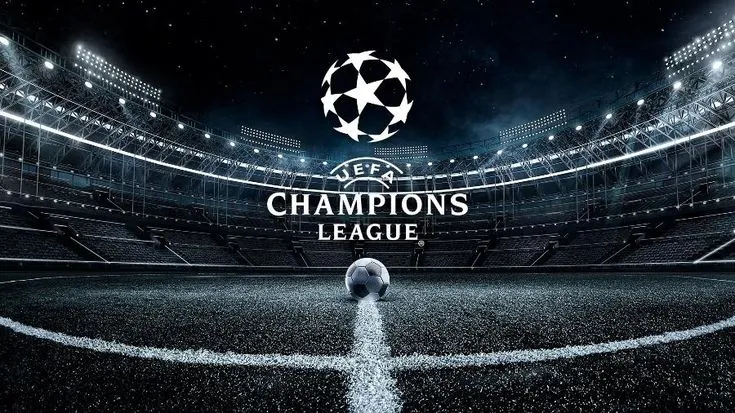The Ultimate Guide to Europe’s Elite Football Competition
Champions League Games – The unmistakable anthem, the starball logo, those magical Tuesday and Wednesday nights—few sporting competitions capture the imagination quite like Champions League games. This prestigious tournament represents the pinnacle of club football, where Europe’s elite teams battle for continental supremacy in what has become the most watched annual sporting event worldwide. Whether you’re a lifelong football fanatic or a casual observer drawn in by the spectacle, the Champions League offers an unrivaled showcase of tactical brilliance, individual genius, and heart-stopping drama.
In this comprehensive guide, we’ll explore everything that makes Champions League games so special—from the tournament’s illustrious history and evolution to the format that creates such compelling narratives each season. We’ll analyze the dominant teams and legendary players who have defined the competition, examine the tactical innovations that have emerged on this grand stage, and look at how technology and globalization have transformed the Champions League experience for fans worldwide.
By the time you finish reading, you’ll have gained a deeper appreciation for the intricate tapestry that is the Champions League and understand why these games continue to represent the absolute zenith of the beautiful game. Let’s dive into the fascinating world of Europe’s premier club competition and discover what makes these matches truly extraordinary.
The Rich History of Champions League Games
From European Cup to Champions League: A Transformation
The competition we now know as the Champions League began life as the European Cup in 1955, the brainchild of French sports newspaper L’Équipe and its editor Gabriel Hanot. Initially created as a tournament for national league champions, the early years were dominated by Real Madrid, who claimed an astonishing five consecutive titles from 1956 to 1960.
For decades, the tournament retained a pure knockout format, creating high-stakes Champions League games from the very first round. The competition underwent its most significant transformation in 1992, when it was rebranded as the UEFA Champions League and expanded to include a group stage. This evolution reflected the changing landscape of European football and the commercial opportunities of the television era.
Key historical milestones include:
- 1955: Inaugural European Cup tournament with 16 teams
- 1960: Real Madrid’s fifth consecutive title, featuring the legendary Ferenc Puskás and Alfredo Di Stéfano
- 1968: Manchester United becomes the first English team to win, a decade after the Munich air disaster
- 1992: Rebranding as the UEFA Champions League with a new format and iconic anthem
- 1997: Borussia Dortmund becomes the first team to win the competition after qualifying through preliminary rounds
- 2003: First all-Italian final between AC Milan and Juventus
- 2008: First all-English final between Manchester United and Chelsea
- 2020: Tournament completed as a single-location mini-tournament due to the COVID-19 pandemic
Each era has produced its own legendary Champions League games, from the 7-3 spectacle between Real Madrid and Eintracht Frankfurt in 1960 to Liverpool’s miraculous comeback against AC Milan in Istanbul in 2005.
The Evolving Format
The tournament format has been continuously refined over the decades, always with the goal of creating more compelling Champions League games while balancing sporting integrity with commercial interests:
- 1955-1991: Straight knockout tournament between national champions
- 1991-1994: Introduction of group stage after initial knockout rounds
- 1994-1999: Expanded group stage with multiple groups
- 1999-2003: Two group phases
- 2003-2024: Group stage of eight groups of four teams, followed by knockout rounds
- 2024-present: “Swiss model” league phase replacing traditional group stage
Each format change has influenced the nature of Champions League games, affecting team strategies, fan experiences, and broadcasting approaches. The latest “Swiss model” reform represents perhaps the most radical change in the competition’s history, designed to create more meaningful matches between top teams earlier in the tournament.
Understanding the Modern Champions League Format
The Road to Qualification
Before the first Champions League ball is kicked each season, teams must navigate an increasingly complex qualification pathway. The tournament has grown from its exclusive origins to now offer pathways for teams from all 55 UEFA member nations.
Qualification routes include:
- Direct qualification: Top-performing leagues (England, Spain, Germany, Italy) receive multiple automatic slots
- Champions Path: Reserved for domestic league champions from lower-ranked nations
- League Path: For non-champions from medium-ranked leagues
- Playoff rounds: Final hurdles before reaching the group stage
The qualification process creates its own drama, with clubs from smaller nations dreaming of reaching the main tournament and the prestige and financial windfall that Champions League games bring.
Group Stage Dynamics
The traditional group stage (now transitioning to the new league phase format) has been the backbone of the modern Champions League since the 1990s. Typically featuring eight groups of four teams, this phase creates several advantages:
- Guaranteed minimum of six Champions League games for each team
- Opportunity for fans to see multiple high-profile matches
- Reduced risk of early elimination for bigger clubs
- Building of narratives and rivalries over multiple matchdays
The group stage often features fascinating subplots: underdog stories, groups of death, tactical chess matches, and breakthrough performances from emerging stars. Teams must balance consistency with strategic gambles, knowing that every point can be crucial for advancement or favorable knockout draw positioning.
Knockout Drama: Where Legends Are Made
While the group stage provides the foundation, it’s in the knockout rounds where the most memorable Champions League games typically occur. From the Round of 16 through to the final, the two-legged ties (with the exception of the one-off final) create unique tactical challenges and emotional swings.
What makes knockout Champions League games so special:
- Away goals rule (now abolished): Created strategic dilemmas for home teams
- Comeback potential: The two-leg format allows for remarkable reversals of fortune
- Tactical flexibility: Teams must adapt between legs based on first-match outcomes
- Mental fortitude: The psychological dimension becomes increasingly important
- Penalty shootouts: The ultimate test of nerve when nothing separates teams
The knockout stages have produced some of football’s most iconic moments: Manchester United’s injury-time double against Bayern Munich in 1999, Liverpool’s “Miracle of Istanbul” in 2005, and Chelsea’s against-all-odds triumph in 2012. These games transcend sport to become cultural touchstones.
The Giants of the Champions League
Dynasties and Dominant Eras
Throughout its history, the Champions League has seen certain clubs establish periods of remarkable dominance, elevating themselves to dynasty status through repeated success in European competition:
- Real Madrid’s initial dominance: Five consecutive titles (1956-1960)
- Ajax and Bayern Munich’s era: Three consecutive titles each in the early-to-mid 1970s
- English supremacy: Six consecutive English winners between 1977 and 1982
- AC Milan under Sacchi and Capello: Four finals and three wins between 1989 and 1995
- Spanish dominance: Seven titles for Spanish clubs between 2009 and 2018
- Modern Real Madrid: Four titles in five years under Zinedine Zidane (2014-2018)
These dominant periods reflect broader shifts in football power dynamics, often tied to economic factors, tactical innovations, or exceptional generations of talent within certain clubs.
Legendary Champions League Performers
Individual brilliance has often defined the most memorable Champions League games, with certain players establishing themselves as specialists on European football’s grandest stage:
- Cristiano Ronaldo: All-time top scorer with 140 goals and five titles
- Lionel Messi: 129 goals and four titles
- Karim Benzema: Clutch performer with crucial knockout stage goals
- Clarence Seedorf: Only player to win with three different clubs (Ajax, Real Madrid, AC Milan)
- Paolo Maldini: Eight finals over a 20-year span
- Iker Casillas: Record 177 Champions League appearances
Coaches, too, have left indelible marks on the competition, with tacticians like Carlo Ancelotti, Pep Guardiola, Jose Mourinho, and Bob Paisley implementing distinctive philosophies that revolutionized how Champions League games are approached.
Iconic Champions League Games
Certain matches have transcended the tournament to become part of football folklore:
- Real Madrid 7-3 Eintracht Frankfurt (1960): The spectacular final that showcased the brilliance of Di Stefano and Puskas
- Manchester United 4-0 Benfica (1968): Ten years after the Munich tragedy, United’s emotional triumph
- Ajax 2-0 Inter Milan (1972): Total Football’s coronation moment
- Liverpool 3-3 AC Milan (2005): “The Miracle of Istanbul” with Liverpool recovering from 3-0 down
- Barcelona 2-0 Manchester United (2009): Guardiola’s tiki-taka masterclass
- Chelsea 1-1 Bayern Munich (2012): The ultimate underdog story with Chelsea winning on penalties in Bayern’s home stadium
- Liverpool 4-0 Barcelona (2019): Overturning a 3-0 first-leg deficit
- Manchester City 1-0 Inter Milan (2023): City’s first Champions League triumph after years of near-misses
These games represent the extraordinary drama that makes the Champions League unparalleled as a sporting competition, combining tactical nuance with raw emotion and individual moments of genius.
The Economics of Champions League Football
Financial Impact and Prize Money
The Champions League has evolved into much more than a sporting competition—it’s now a massive economic engine that can transform club fortunes. Participation in Champions League games provides multiple revenue streams:
- Prize money: Starting at approximately €15.64 million just for reaching the group stage
- Performance bonuses: Additional payments for wins, draws, and progression
- Market pool: Distributed based on the value of each national TV market
- Coefficient ranking: Payments based on historical performance over ten years
For many clubs, particularly those outside the wealthiest leagues, qualifying for the Champions League represents a financial windfall that can fundamentally alter their competitive position. The economic gap between regular participants and those unable to access the competition continues to widen, creating a self-reinforcing hierarchy in European football.
Broadcasting Revolution
The way fans consume Champions League games has undergone several revolutions since the tournament’s inception:
- 1950s-1970s: Limited television coverage, mainly of finals
- 1980s-1990s: Increased broadcast reach but still selective coverage
- 1990s-2000s: Dedicated sports channels providing comprehensive coverage
- 2010s-present: Streaming platforms, multi-screen viewing, and global accessibility
Broadcasting rights for Champions League games have become increasingly valuable, with UEFA securing approximately €3.5 billion annually from global media partners. This has transformed how the competition is presented, with enhanced production values, expanded punditry teams, and immersive second-screen experiences becoming standard.
Commercial Partnerships and Global Reach
The Champions League brand has developed into one of sport’s most valuable commercial properties, with blue-chip sponsors paying premium rates for association with the competition. The tournament’s global appeal makes it particularly attractive to multinational companies seeking worldwide exposure.
The international popularity of Champions League games continues to grow, with passionate fanbases developing in regions like Asia, North America, and Africa. This globalization has influenced scheduling decisions, commercial activities, and even pre-season tour destinations for participating clubs.
Tactical Evolution Through Champions League History
How European Nights Shape Football Innovation
The Champions League has consistently served as football’s most important tactical laboratory, where innovative approaches are tested against elite opposition. Several revolutionary tactical systems have either emerged or been perfected through Champions League games:
- Total Football: Developed by Ajax in the early 1970s
- Catenaccio: Italian defensive system refined by Inter Milan
- Pressing revolution: Championed by Arrigo Sacchi’s AC Milan
- Tiki-taka: Barcelona’s possession-based dominance under Guardiola
- Gegenpressing: Jürgen Klopp’s high-intensity approach
- Positional play: Modern evolution of spatial control principles
The two-legged knockout format creates particularly interesting tactical challenges, forcing coaches to think across 180 minutes rather than 90. This has led to fascinating approaches where teams deliberately adapt their style between home and away legs based on the specific demands of each situation.
Case Study: The 2005 Liverpool Comeback
Perhaps no match better illustrates the tactical drama of Champions League games than the 2005 final between Liverpool and AC Milan. At halftime, with Liverpool trailing 3-0, manager Rafael Benítez made a crucial tactical adjustment:
- Moved from 4-4-2 to 3-5-2, introducing Dietmar Hamann
- Pushed Steven Gerrard into an advanced role
- Narrowed the midfield to counter Milan’s strength
- Emphasized quick transitions rather than sustained possession
These changes neutralized Milan’s midfield control, exploited Gerrard’s ability to find spaces between lines, and ultimately facilitated one of sport’s greatest comebacks. The match demonstrates how tactical flexibility can dramatically alter Champions League games even at the highest level.
Modern Tactical Trends
Recent seasons have seen Champions League games showcase several evolving tactical themes:
- Positional fluidity: Players operating in multiple zones rather than fixed positions
- High defensive lines: Teams compressing space despite the risk
- Building from the back: Goalkeepers and center-backs as playmakers
- Counterpress: Immediate ball recovery after possession loss
- Five-substitute impact: Greater in-game tactical variability
The elite technical level of modern players has enabled increasingly complex tactical systems, with coaches like Pep Guardiola, Jürgen Klopp, Carlo Ancelotti, and Thomas Tuchel pushing the boundaries of what’s possible within Champions League games.
Looking for Premium Channels, Sports, and 4K Streaming?
Don’t miss out on these top-rated IPTV services – all at unbeatable prices!
🔥 TiviBridge – Ideal for sports lovers & international content
🎬 Iptvbridge – Perfect for live TV, movies & entertainment
💰 TiviPlanet – Best value for budget-conscious streamers
🚀 Start Your IPTV Business Today!
Get instant access to a powerful Reseller IPTV Panel with competitive pricing, advanced features, and 24/7 support. Join TiviBridge and grow your own IPTV empire with ease!
👉 Start your FREE trial now and elevate your viewing experience with seamless, high-quality streaming!
Fan Culture and the Champions League Experience
The Unique Atmosphere of European Nights
Few sporting experiences match the distinctive atmosphere of Champions League games, especially those played under floodlights on weekday evenings. The tournament has developed its own rituals and traditions:
- The anthem: Composed by Tony Britten based on Handel’s “Zadok the Priest”
- Choreographed displays: Elaborate tifo displays planned for months
- Away day adventures: Supporters traveling across continents
- Historic venues: Iconic stadiums with their own European pedigree
Despite the commercialization of modern football, the raw passion of fans during Champions League games provides a connection to the sport’s traditional roots and community foundations. The contrasting styles of support—from the choreographed intensity of German ultras to the enduring songs of Liverpool’s Kop—add a cultural richness to the competition.
Memorable Fan Moments
Fan involvement has created some of the Champions League’s most enduring images:
- Liverpool’s comeback against Barcelona: The power of Anfield’s atmosphere
- Borussia Dortmund’s Yellow Wall: Visual intimidation through coordinated support
- Celtic defeating Barcelona: The power of underdog home advantage
- Ajax fans’ traditions: From pre-match gatherings to post-game player appreciation
These moments illustrate how supporters aren’t merely spectators but active participants in Champions League games, capable of influencing outcomes through their collective energy and support.
The Modern Matchday Experience
Technology has transformed how fans engage with Champions League games both in-stadium and remotely:
- Second-screen experiences: Following stats, social media reactions, and alternative camera angles
- Enhanced stadium technology: LED displays, improved acoustics, and connectivity
- Virtual fan communities: Global connection through social platforms
- Content proliferation: Podcasts, YouTube channels, and dedicated fan media
While traditionalists may lament certain aspects of the modernized experience, the Champions League has generally managed to blend innovation with respect for the tournament’s heritage, maintaining the special feeling of European nights.
The Future of Champions League Football
The Swiss Model Revolution
The 2024/25 season marks the beginning of the most significant format change in Champions League history, with the traditional group stage replaced by a “Swiss model” league phase:
- 36 teams in a single league rather than eight groups of four
- Each team plays eight different opponents (four home, four away)
- Top eight automatically advance to Round of 16
- Teams finishing 9th-24th compete in playoff round
- Teams below 24th are eliminated
This radical redesign aims to create more meaningful Champions League games earlier in the competition while reducing “dead rubber” matches where teams have nothing to play for. The change reflects the balancing act between sporting integrity, commercial interests, and fan engagement that UEFA continually navigates.
Technology and Innovation
Looking ahead, several technological trends are likely to reshape how Champions League games are experienced:
- VAR evolution: Continued refinement of video technology
- Player tracking data: Advanced metrics available in real-time
- Augmented reality viewing: Enhanced broadcast experiences
- Blockchain applications: For ticketing and fan engagement
- Virtual reality: Immersive viewing options for global fans
Though tradition remains important to the Champions League’s identity, the competition has demonstrated a willingness to embrace innovation when it enhances the quality and accessibility of matches.
Geopolitical and Financial Challenges
Several significant challenges face the Champions League in coming years:
- Super League threat: Potential breakaway competitions from elite clubs
- Financial sustainability: Growing concerns about economic fair play
- Global competition calendar: Balancing club and international demands
- Changing viewing habits: Adapting to younger audiences’ preferences
- Geopolitical tensions: Impact of international conflicts on a pan-European competition
How UEFA navigates these challenges will determine whether the Champions League maintains its position as football’s most prestigious club competition or faces increased fragmentation and competition from rival tournaments.
How to Experience Champions League Games to the Fullest
Watching Strategies for Maximum Enjoyment
Whether you’re a dedicated follower or casual fan, these approaches can enhance your experience of Champions League games:
- Understand the context: Research team form, historical rivalries, and tactical approaches
- Appreciate the subtleties: Focus beyond the obvious star players to tactical battles and key matchups
- Engage with quality analysis: Seek out insightful commentary rather than merely reactive hot takes
- Connect with the community: Share the experience through watch parties or online discussion
- Document memorable moments: Create your own tradition of preserving special Champions League memories
For the most important Champions League games, consider creating a proper viewing environment—good screen, quality audio, comfortable seating, and minimal distractions can transform the experience.
Planning a Champions League Away Trip
For many fans, attending Champions League games in person represents a football bucket list item. If planning such an adventure:
- Research thoroughly: Understand local customs, stadium access, and safety considerations
- Book early: Accommodation prices surge around major matches
- Connect with local supporters: Often the best source of authentic advice
- Allow buffer time: European travel can be unpredictable
- Embrace the cultural experience: Extend your trip to appreciate the host city
Even with increasing ticket prices, the in-person experience of Champions League games offers something television cannot replicate—the full sensory immersion of being present for potentially historic moments.
Building Your Champions League Knowledge
Deepening your understanding of the Champions League can significantly enhance your appreciation of the tournament:
- Study the classics: Watch full replays of legendary matches
- Read player autobiographies: Gain insight into the experience of Champions League football
- Explore tactical analysis: Understand the strategic dimensions beyond the surface narrative
- Follow specialist journalists: Find voices who provide thoughtful, nuanced coverage
- Learn the history: Appreciate how the competition has evolved over decades
The Champions League rewards this type of engagement, with each season’s narrative enriched by historical context and deeper understanding of the game’s nuances.
FAQ: Champions League Essentials
When were Champions League games first played?
The competition began as the European Cup in the 1955/56 season, with the first matches played in September 1955. It was rebranded as the UEFA Champions League for the 1992/93 season, introducing the format and branding elements we recognize today.
How many teams qualify for the Champions League?
Under the new Swiss model format introduced in 2024, 36 teams participate in the league phase of the Champions League. This represents an expansion from the previous format, which featured 32 teams in the group stage.
Which team has won the most Champions League titles?
Real Madrid is the most successful club in Champions League history, with 14 titles (as of 2023). They have been particularly dominant in the modern era, winning five times between 2014 and 2022.
What is the Champions League anthem?
The iconic Champions League anthem was composed by Tony Britten in 1992, based on George Frideric Handel’s “Zadok the Priest.” It features lyrics in UEFA’s three official languages: English, French, and German.
How is Champions League qualification determined?
Qualification for the Champions League is primarily based on domestic league performance, with higher-ranked national leagues receiving more automatic qualification spots. Additional pathways exist for domestic cup winners and through qualifying rounds for teams from lower-ranked leagues.
When are Champions League games played?
Champions League games traditionally take place on Tuesday and Wednesday evenings during designated “matchweeks” throughout the European football season, typically from September to May/June. Kickoff times are standardized, usually at 18:45 and 21:00 CET.
Has any team won the Champions League undefeated?
Yes, several teams have won the Champions League without losing a single game during their campaign. Manchester United (1998/99), Liverpool (2018/19), and Bayern Munich (2019/20) are among the clubs to have achieved this feat in the modern era.
Who is the Champions League all-time top scorer?
Cristiano Ronaldo holds the record for most goals in Champions League history, with 140 goals. Lionel Messi follows closely with 129 goals, with both players having defined an era of the competition through their remarkable scoring achievements.
What is the biggest win in Champions League history?
The record for the largest margin of victory in Champions League history belongs to Liverpool, who defeated Maribor 7-0 in 2017. This record score has been matched several times but never surpassed in the competition proper (excluding qualifying rounds).
How much prize money do Champions League winners receive?
The financial reward for Champions League success is substantial. As of the 2023/24 season, the overall champions can earn upwards of €85 million in prize money alone, with additional revenues from matchday income, broadcast shares, and commercial opportunities potentially doubling this figure.
Conclusion
The Champions League stands as football’s ultimate club competition—a tournament that transcends sport to become a cultural phenomenon. From its humble beginnings as a pan-European competition for national champions to today’s global spectacle, it has continuously evolved while maintaining the essential drama and prestige that make Champions League games so special.
What separates the Champions League from other sporting competitions is its perfect balance of elements: the blend of tactical chess and raw emotion, the mix of established powerhouses and emerging underdogs, the combination of individual brilliance and collective resilience. These ingredients create an irresistible narrative each season, with every campaign writing its own unique chapter in football history.
As we enter a new era with the Swiss model format, the fundamental appeal of Champions League nights remains unchanged—the possibility of witnessing something extraordinary, something that transcends the everyday and enters sporting legend. Whether you’ve followed the competition for decades or are just discovering its magic, the Champions League rewards your attention with football at its most compelling.
We encourage you to deepen your connection with this magnificent tournament—share your most memorable Champions League moments in the comments, explore our related content about European football’s greatest stages, and join us in celebrating the unparalleled drama of continental competition. The Champions League journey continues, and the next unforgettable chapter could unfold in the very next match.



